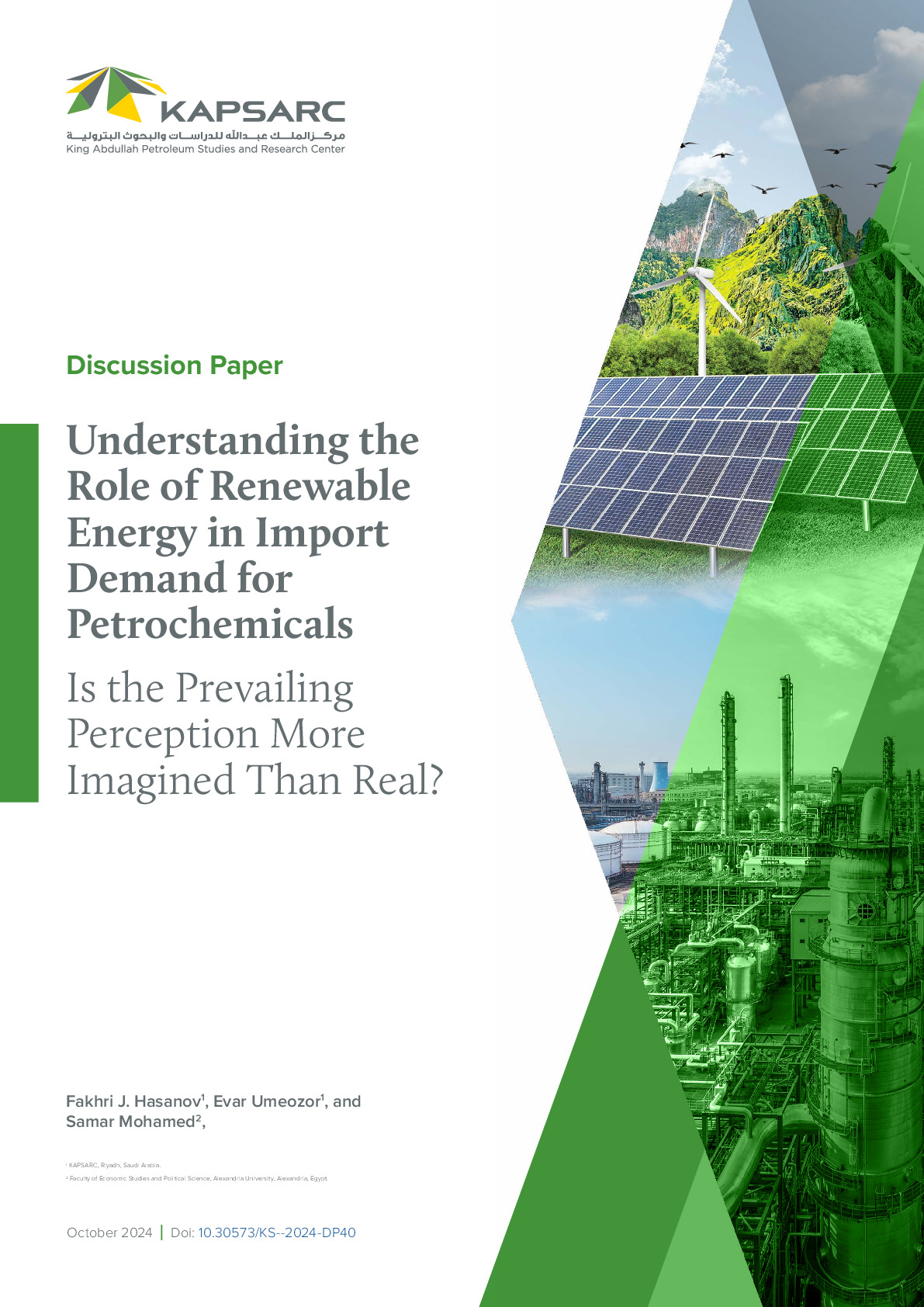Saudi Vision 2030 aims to improve Saudi Arabia’s ranking on the Global Competitiveness Index from 25 in 2015–2016 to within the top 10 by 2030. It also strives to increase the share of non-oil exports in non-oil GDP from 16% in 2016 to 50% by 2030. To achieve these goals, decision-making process should be better informed about the driving forces of Saudi Arabia’s competitiveness. To this end, we consider the real effective exchange rate (REER) as a measure of external price competitiveness, as it captures domestic and global changes in prices.

Noha A. Razek
Senior Research Associate
Noha is a senior research associate in KAPSARC’s Markets and Industrial Development program. She has more than 10 years of…
Noha is a senior research associate in KAPSARC's Markets and Industrial Development program. She has more than 10 years of research experience specializing in energy economics and international economics. Her current research examines China’s demand for natural gas and oil and its implication on the Saudi and global economy; the macroeconomic impact of oil-price shocks on oil exporters; and the role of OPEC, shale producers, and China in influencing oil prices. Noha has contributed to the preparation of the workshop on Sheltering the Economies of Oil Exporting Countries from Energy Shocks and to the workshop brief. She was a post-doctoral fellow at the China Institute and a researcher at the School of Business at the University of Alberta before joining KAPSARC. She is a committee member of the Canadian Community of Riyadh (CCOR).



